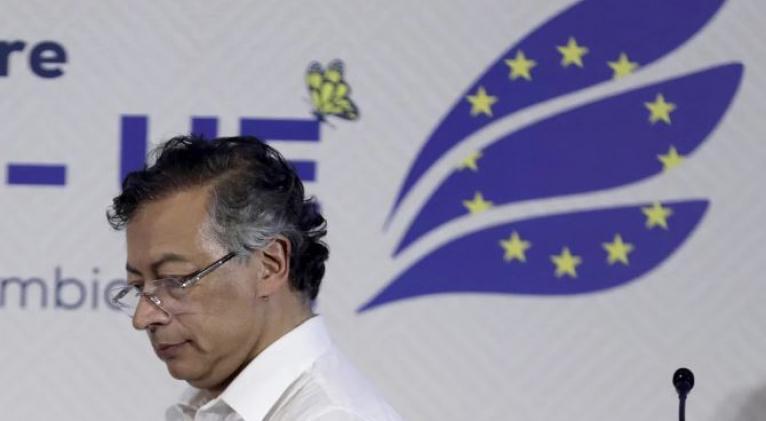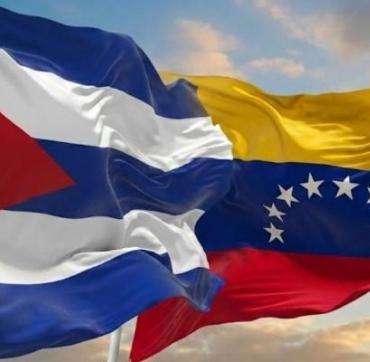Petro to Recall Colombian Ambassador to U.S. Following Magazine Report
especiales

Bogotá - Colombian President Gustavo Petro announced he will once again recall his ambassador to the United States, Daniel García-Peña, for consultations. This decision comes after the Colombian magazine Cambio published a photo on Sunday showing a senior White House official holding a document that features a mock-up image of the Colombian leader in a prison uniform.
A "Brutal Disrespect"
In a post on the social media platform X, President Petro stated, "If an ambassador is recalled for consultations, the one acting for the other country returns to their nation while pertinent information is received. Here, it is about finding out why on the official White House page they portray me as if I were a prisoner in a U.S. jail. That is a brutal disrespect to the people who elected me and to the Colombian nation and its history."
The 'Trump Doctrine' Document
According to the Cambio report, the official carrying the folder with a document titled 'Trump Doctrine' is White House Deputy Chief of Staff James Blair. The document features images of both President Petro and Venezuelan President Nicolás Maduro in the orange jumpsuits worn by inmates in the United States.
The photo—which also shows White House Director of Legislative Affairs James Braid and Republican Senators Lindsey Graham and Mike Lee—was posted on the White House website and disseminated on October 21 following a meeting between U.S. President Donald Trump and the Republican senators.
The document, which carries the letterhead of Republican Senator Bernie Moreno, states, "Despite decades of close collaboration between the United States and its allies in South America, the Government of Colombia has been taken over by Gustavo Petro, who was elected with the support of drug cartels. It is necessary to implement the 'Trump Doctrine' in Colombia and the Western Hemisphere."
The plan outlined in the document includes five stages, involving steps such as designating other cartels as Foreign Terrorist Organizations, establishing "selective sanctions against Petro, his family, and his associates," combating "corrupt and anti-American criminal actions," supporting "pro-American leaders in the Western Hemisphere," and initiating "a comprehensive investigation into Petro's campaigns and their foreign funding."
Petro's Response and Escalating Tensions
President Petro responded forcefully to the report, calling it a "national security problem." He stated, "The objectives they are trying to establish include imprisoning the president of Colombia without him being charged with any crime... What they [in the U.S.] are seeking is not to end cartels," but rather, he alleged, right-wing Colombian politicians linked to mafias have gone to the U.S. "to seek the destruction of the government of Colombia, simply because it is progressive and does not align with narco-paramilitary governance."
He added, "What they seek is to homogenize Latin America as an obedient servant of a government that does not respect the rules of sovereignty and democracy. For the U.S. president to accept this type of 'fake news' among his advisors demonstrates total disrespect for the Colombian people."
The relationship between Bogotá and Washington has been increasingly strained. Last month, the U.S. Treasury Department announced the inclusion of Petro, his wife Verónica Alcocer, his son Nicolás Petro, and Colombian Interior Minister Armando Benedetti on the OFAC "Clinton List" due to alleged links to drug trafficking, resulting in the blocking of their U.S. assets.
Tensions further escalated in September when the United States removed Colombia, the world's largest producer of cocaine, from its list of nations cooperating in the fight against drug trafficking. That same month, the U.S. revoked President Petro's visa following his participation in a pro-Palestinian event in New York during the UN General Assembly.














Add new comment